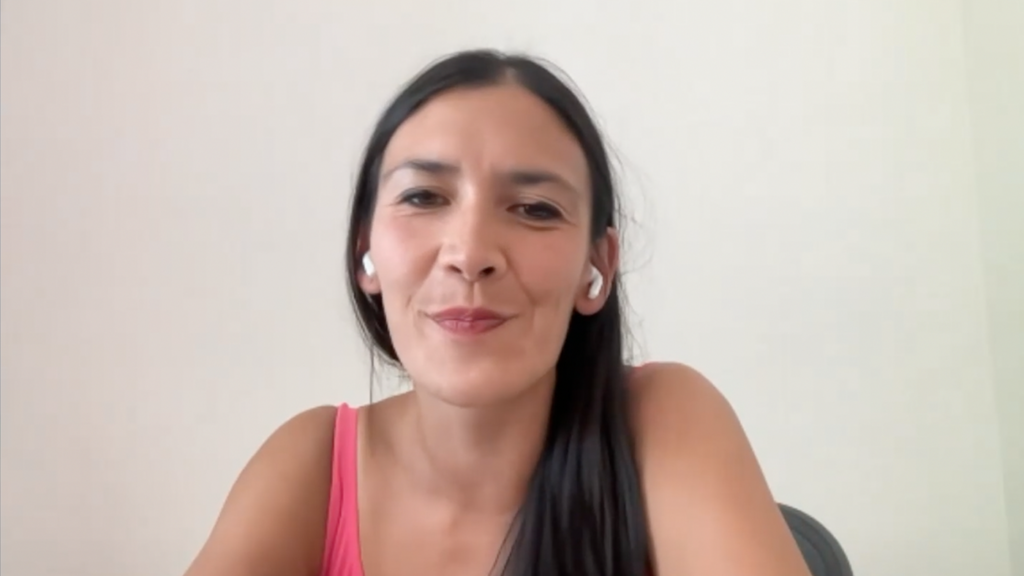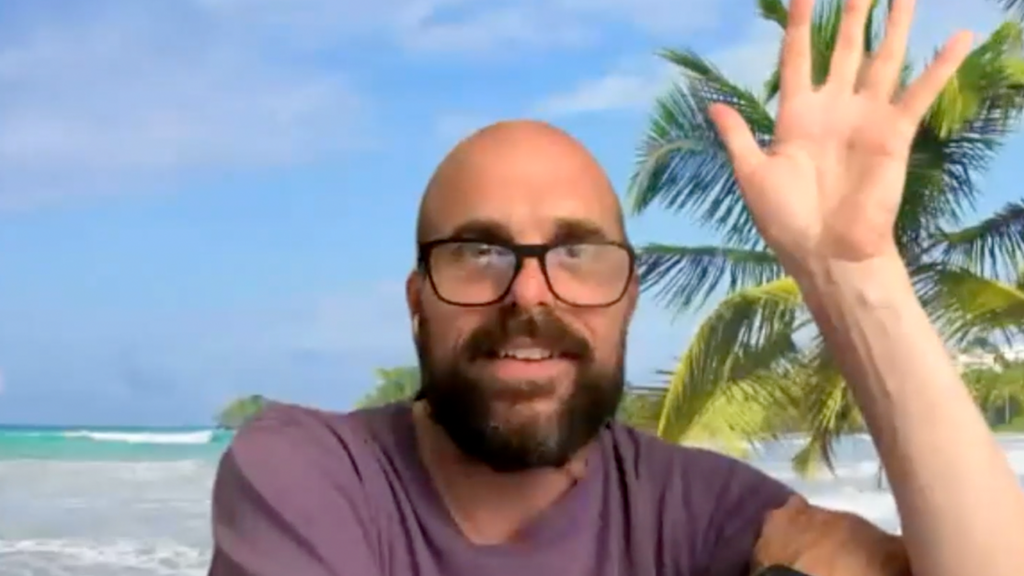Hand in Hand: The Art of Booking Tours & Artist Management
#HowWeListen Live: In Conversation with Michelle Cable took place on Tuesday, the 28th of June, live from LA. Michelle Cable, founder of Panache Booking and Panache Management.
Michelle joined us from Los Angeles, California
The following transcript has been edited for length and clarity.
In Part II (below) Michelle Cable talks with Marc about how she made the jump from fanzine to booking agent and then management. Get out on the road to better understand what you are putting your artist through. Plus Panache’s first management client, Ty Segall. We also find out about the “velvet hammer”.
Miss Part I? Head back to read it here.
The following transcript has been edited for length and clarity.
Marc Brown: Michelle, you told me the story of when you went to work somewhere to try and learn about the business of booking bands. Was it at an agency?
Michelle Cable: Yes, a lot of people ask me if I had a mentor when I started. I did not. I didn’t intern at an agency and work my way up. What you are talking about happened when I was 21. I decided to take an internship to gain more knowledge. To learn from someone who had been in the business for longer than I had. After 4 hours, I was told that I was being let go because they thought I wanted a job there. I was an intern, working for free, but I guess they thought I was going to demand a job. So I just kept doing my own thing. Different people I knew in the industry would give me some of their contacts. From there I built my relationships.
Marc: So, they thought you were too good?
Michelle: It was such an absurd thing. Ultimately, though, I did not have anyone to show me the ropes when I got started. Today, COVID has changed things, we don’t have interns in the office. My ability to mentor younger folks is more limited now. Before I became a parent, I’d try to hop on a call with people who wanted advice. I also used to do panels around the world, talking about how I got started. I wanted to give people more of a background on how you can have a sustainable business in this industry. Especially as a woman.
The fact that I am where I am now is shocking to me when I think about how far I had to come. I just really liked music and I was encouraged and motivated by the bands I’d helped. There was no financial goal in mind other than sustaining myself.
Today, there are so many young bands that I wish I could help and take on. Sadly, I just do not have the capacity to do that. That’s why I think it’s important to have newer promoters help younger artists grow. A lot of the time people/bands just need someone who will believe in them and encourage them. If they’re good, they’ll grow with the right people behind them. I’d encourage anyone to become a small agency or promoter.
Marc: You mentioned being a woman in the industry. Did you notice any pushback or indifference as you were coming up?
Michelle: I think I was so young that I did not even realize that when people didn’t take me seriously, it was because I was a woman. People did not expect a certain fierceness and motivation and that surprised them. I do know that some of the bands I’ve worked with have had others say to them “You need a man to be doing this for you”.


Marc: Wow. People have actually said that?
Michelle: Yeah, people say that even to this day. There’s more equality out there. However, when you look at the numbers for CEOs or women-run companies it’s still pretty small. So, I’m always trying to diversify my employee base.
There are many stupid comments people have said to me where they assume that the reason I’m in my position is because of something else other than my hard work. It’s pretty shocking.
Marc: Exactly – people are thinking these things in the background but the idea that anyone should have to hear such idiotic comments is shocking.
Michelle: Exactly. I always took that as fuel to motivate me to prove people wrong. I don’t think my being a woman has let any of my artists down. If anything, I think it’s helped because I’ve been able to shape their careers with a certain finesse and grace that is unique to me. One time an artist I worked with called me the Velvet Hammer which is funny. I like to encourage other people who might not have financial backing or support from a larger company to learn through trial and error. I did it all. Went on tour, was a tour manager, and sent out press releases. I wanted to do all of that so that I understood every piece of the music industry.
Marc: I think that’s interesting – the idea of going on tour to understand everything that goes on. It’s so different from that perspective, I would recommend that anyone who can go on tour do it. You learn so much about what it’s like to be in a band.
Michelle: Exactly. I also think that when you’re on the road you see the actual results. Then you can better understand what an artist goes through. It ultimately makes you better at what you’re doing.
Marc: Kent has a question. He’s asking about your relationship with promoters. What do you do versus what they do? Also if a promoter is synonymous with a talent buyer?
Michelle: Well, I have a list of talent buyers for each city – normally there is one or two per venue and they have a specific set of rooms that they are the in-house talent buyer for. Their job is to fill the schedule for that venue. They do think about ticket sales but talent buyers are trying to get bands in the room and then there is usually a separate team that markets those shows. I can pick and choose who I work with, so I want to find an in-house talent buyer that cares about the show and promote it.
Marc: So a talent buyer is just filling up the schedule, and a promoter thinks about how to make it the best gig possible?
Michelle: Yeah, an independent promoter is assuming a lot more risk than an in-house talent buyer but they overlap.
A lot of the people I choose to work with are based on loyalty – if I’ve had a lot of great experiences with them I’ll try to keep an artist with that same promoter or booker, even if the venue changes. I want to make sure that I work with someone that will do everything they can to make sure it goes well because if I’m booking a show and there are 28 dates, I’m overseeing the marketing plans but I’m not the person executing all of that stuff locally, on the ground.
Marc: So the biggest thing for you is trust? Like you want to work with promoters where there is mutual trust so if you bring in a band and they make no money or take a loss, they know that since the band is building it’s strategic.
Michelle: Yeah and some promoters will want to work with you because you worked with a bigger artist, so they will book a show with your younger artist with the hope that they’ll also get the bigger artist so it’s kind of like a negotiation. I think most people understand that as an artist grows there’s some loss or struggle.
One thing I’ve done with Panache is to make sure we always work with bands who are incredible live so that buyers and promoters trust me. We’re highly curated with who we work with. We are small so we do not take on artists for the short term – there are some artists that I’ve worked with for over a decade.
Marc: Here’s another question, from Paul. He’s wondering about ticket refunds and why they aren’t allowed. He’s saying it would be more of a motivation for people to take risks on gigs if they can get refunds on tickets.
Michelle: For Panache, if we had to move something because of COVID we always gave people a window to get refunds. For promoters and buyers, it’s probably risky for them to sell a bunch of tickets and then have the option of people always getting refunds because you would not know what to expect the night of the show. For the most part, I don’t have control over refund policies – it’s more of a venue or ticketing thing.
Marc: OK, so can you tell me about how you got into doing management, and for how long?
Michelle: Almost a decade now. I feel like my first official management role was with Ty Segall – I was booking him and ended up helping him with a variety of things like selling merch and sending music to labels. We had a conversation and agreed to do a trial of me managing him, and it went well so I’m still managing him to this day. That then led to Mac DeMarco, who I also still manage. I’d worked with him as his booking agent since his first record. He and Ty played together and when Mac found out that I was managing Ty he asked me to manage him too.
Marc: Maybe he needed a Velvet Hammer too!
Michelle: Ha! Exactly! Since I was still learning I did not want to be overly confident about it but then he suggested it to me. It kind of organically evolved from there and I started taking on other clients. During the pandemic, I leaned in on the management stuff a lot because shows were such a mess. It’s always interesting because you end up working with a wider range of people than the talent buyer community.
Marc: It’s a new challenge I guess – a new way of looking at things.
Michelle: Yeah. I’ve always evolved when I needed to and that has worked for me so far. As a manager, you are involved in every aspect of an artist’s career so it is an intimate relationship. With booking, it was more straightforward and short term but with management, it’s more of a longer-term process over many years. I love what I do and I know that what we do as a booking agency is important but I also love the management side of it too.
Marc: OK, here is a quick question – what are 3 mistakes to avoid as a manager?
Michelle: Not asking questions or pretending you know all the answers.
Marc: That’s a great one, give me an example!
Michelle: It applies to everything, but especially something like finances. That kind of mistake could put someone in a really deep hole if you don’t know what you’re doing. Another common mistake is being rude – it’s important to be nice to everyone. One thing I’ve learned is that you might have an intern working in your office that will eventually surpass you in the business, so it is important to respect everyone around you. I mean be nice, and not just because someone might be important someday.
Another thing is that you need to be super mindful when taking on an artist. It’s such a long-term commitment and you need to make sure that you’re doing a good job because you can ruin someone’s career. If you take on too much too fast you can not do your job properly, so you need to assess before you just grow.
Marc: I think that’s super interesting – how things have evolved for you and Panache. It makes total sense why you are where you are, and the key takeaway for me is that you meet people along the way that stick with you. People do not always realize that about music – it’s all about relationships. The people you know at the start of your career will be the people you know 20 years from now.
Michelle: Exactly, it is super rewarding to have those relationships whether or not you work with them in the future. The music industry is all about that and mutual respect amongst everyone involved.
Marc: Cool, thanks so much. I appreciate you taking the time to chat with me.
Michelle: Thank you, Marc




